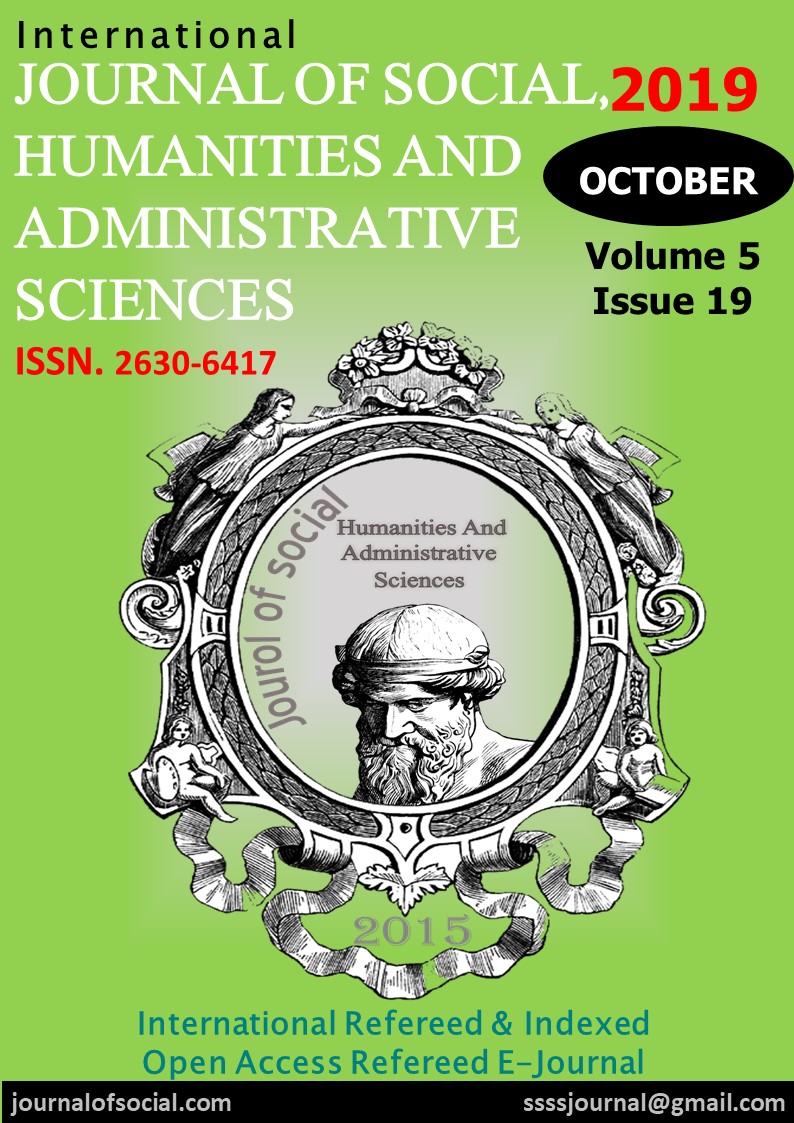Author :
Abstract
Son yıllarda işletmelerde çalışanların örgütsel destek algılarının işe angaje olmaları üzerindeki etkilerinin araştırılması hızlı bir şekilde önemli olmaya başlamıştır. Çalışanların işletmedeki örgütsel desteğin olumlu bir doğrultuda olduğunu düşünmesi işe angaje olmalarını olumlu olarak etkileyecektir. Bu hal, onların işletme ile daha çok uyumlu olma isteğini ve işe angaje olma seviyelerini üst düzeye çıkaracaktır. Bu kapsamda araştırmanın esas amacı Konya Organize Sanayi Bölgesi makine ve parçaları sanayi işletmelerinde çalışanların örgütsel destek algılarının işe angaje olma üzerindeki etkisinin saptanmasıdır. Bu araştırmanın önemi çalışanların örgütsel destek algıları ve işe angaje olma ilişkilerinin anlaşılmasıdır. Araştırmada anket tekniği kullanılmış olup anketler 136 beyaz yakalı çalışana uygulanmıştır. Bu bölümdeki analizlerde SPSS 18.0 ve AMOS 11 programları kullanılmıştır. Araştırma analizleri yürütülürken geçerlilik ve güvenilirlik, faktör analizleri, korelasyon ve regresyon analizleri kullanılmıştır. Analizlerin neticesinde çalışanların örgütsel destek algılarının işe angaje olmaları üzerinde anlamlı ve olumlu bir etkisi bulunmuştur. Buna ek olarak değişkenlerin alt boyutlarıyla ilgili olarak; işle ilgili desteğin enerjik olma ve çalışmaya kapılma üzerinde anlamlı ve olumlu bir etkisi bulunmuştur. Ayrıca duygusal desteğin enerjik olma, çalışmaya kapılma ve kendini adama üzerinde anlamlı ve olumlu bir etkisi bulunmuştur.
Keywords
Abstract
In recent years, studies on the effects of organizational support perceptions of the employees who work in the organization on their work engagement has quickly become vitally important. The thought of employees about that organizational support in the organization is on the beam will positively affect their work engagement. This state will increase their willingness to fit with the organization and their degree of work engagement. Within this scope, the main purpose of study is to determine the effect of organizational support perception on work engagement of employees working in the machinery and parts manufacturing enterprises in Konya Organized Industrial Zone. The importance of this study is to understand the relationship between organizational support perception and work engagement. In this study, questionnaire technique has been used and questionnaires have been carried out to 136 White Collar employees. SPSS 18.0 and AMOS 11 programs have been used in the analysis of this part. Validity and reliability, factor analysis, correlation and regression analysis have been used in the study when performing the research analyses. As a result of the analysis, a positive relationship was found between organizational support and work engagement. Moreover, according to the sub-dimensions of the variables; it was found that job related support had a significant and positive effect on vigor and absorption. Additionally, It was found that emotional support had a significant and positive effect on vigor, absorption and dedication.
Keywords
- Arslan, E. T., & Demir, H. (2017). İşe angaje olma ve iş tatmini arasındaki ilişki: Hekim ve hemşireler
- Arslan, E. T., & Demir, H. (2017). İşe angaje olma ve iş tatmini arasındaki ilişki: Hekim ve hemşireler üzerine nicel bir araştırma. Yönetim ve Ekonomi, 24(2), 371-389.
- Caesens, G., & Stinglhamber, F. (2014). The relationship between perceived organizational supportand work engagement: The role of self-efficacy and its outcomes. European Review of Applied Psychology, 64(5), 259-267.
- Eisenberger, R., Cummings, J., Armeli, S., & Lynch, P. (1997). Perceived organizational support, discretionary treatment, and job satisfaction. Journal of Applied Psychology, 82(5), 812-820.
- Eisenberger, R., Huntington, R., Hutchison, S., & Sowa, D. (1986). Perceived organizational support. Journal of Applied Psychology, 71 (3), 500- 507.
- Güney, S., Akalın, Ç., & İlsev, A. (2007). Duygusal örgütsel bağlılık gelişiminde algılanan örgütseldestek ve örgüt temelli öz-saygı. Hacettepe Üniversitesi İktisadi ve İdari Bilimler Fakültesi Dergisi, 25(2), 189-211.
- İnce, A. R. (2016). Algılanan örgütsel desteğin işe adanmışlık üzerindeki etkisinde yönetici desteğinin aracılık rolü. Electronic Journal of Social Sciences, 15(57), 649-660.
- Kahn, W. A. (1990). Psychological conditions of personal engagement and disengagement at work. Academy of Management Journal, 33(4), 692-724.
- Maslach, C., & Leiter, M. P. (2008). Early predictors of job burnout and engagement. Journal of Applied Psychology, 93(3), 498-512.
- Naudé, J. L., & Rothmann, S. (2006). Work-related well-being of emergency workers in Gauteng. South African Journal of Psychology, 36(1), 63-81.
- Schaufeli, W. B., Salanova, M., González-Romá, V. & Bakker, A. B. (2002). The measurement ofengagement and burnout: A two sample confirmatory factor analytic approach. Journal of Happiness Studies, 3(1), 71-92.
- Shantz, A., Alfes, K., & Latham, G. P. (2016). The buffering effect of perceived organizationalsupport on the relationship between work engagement and behavioral outcomes. Human resource management, 55(1), 25-38.
- Shore, L. M., Tetrick, L. E., & Barksdale, K. (1999). Measurement of Transactional and RelationalExchanges. Paper Presented At The 14th Annual Conference of The Society For Industrial and Organizational Psychology, Atlanta.
- Wayne, S. J., Shore, L. M., Bommer, W. H., & Tetrick, L. E. (2002). The role of fair treatment andrewards in perceptions of organizational support and leader-member exchange. Journal of Applied Psychology, 87(3), 590-598.





